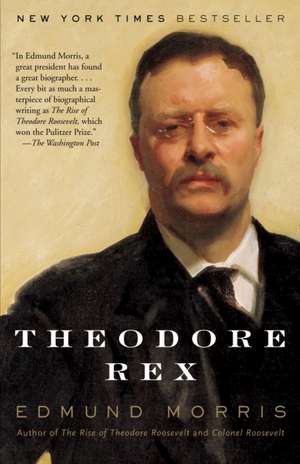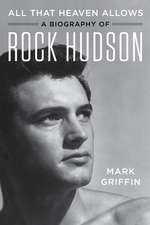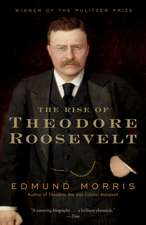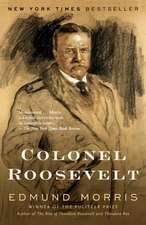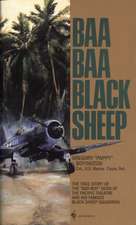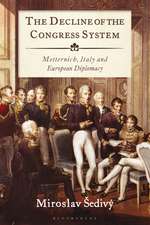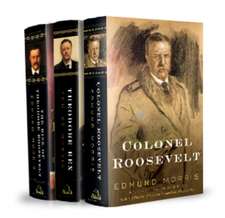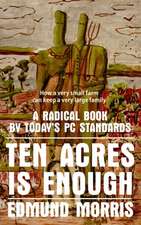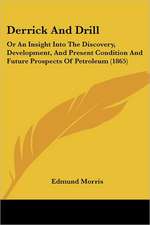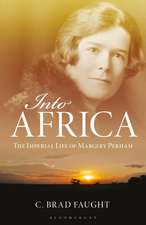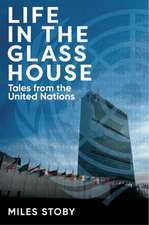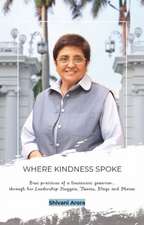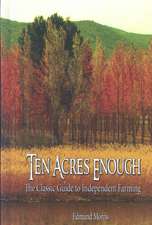Theodore Rex: Modern Library Classics
Autor Edmund Morrisen Limba Engleză Paperback – 26 dec 2002
Vezi toate premiile Carte premiată
ALA Notable Books (2003)
| Toate formatele și edițiile | Preț | Express |
|---|---|---|
| Paperback (1) | 135.86 lei 3-5 săpt. | +24.30 lei 4-10 zile |
| KUPERARD (BRAVO LTD) – 26 dec 2002 | 135.86 lei 3-5 săpt. | +24.30 lei 4-10 zile |
| Hardback (1) | 266.61 lei 3-5 săpt. | |
| Random House – 31 oct 2001 | 266.61 lei 3-5 săpt. |
Din seria Modern Library Classics
-
 Preț: 55.06 lei
Preț: 55.06 lei -
 Preț: 105.38 lei
Preț: 105.38 lei -
 Preț: 121.89 lei
Preț: 121.89 lei -
 Preț: 92.61 lei
Preț: 92.61 lei -
 Preț: 83.71 lei
Preț: 83.71 lei -
 Preț: 107.66 lei
Preț: 107.66 lei -
 Preț: 133.82 lei
Preț: 133.82 lei -
 Preț: 137.55 lei
Preț: 137.55 lei -
 Preț: 106.90 lei
Preț: 106.90 lei -
 Preț: 191.61 lei
Preț: 191.61 lei - 21%
 Preț: 87.90 lei
Preț: 87.90 lei - 12%
 Preț: 101.98 lei
Preț: 101.98 lei -
 Preț: 110.15 lei
Preț: 110.15 lei -
 Preț: 43.39 lei
Preț: 43.39 lei -
 Preț: 94.62 lei
Preț: 94.62 lei -
 Preț: 66.70 lei
Preț: 66.70 lei -
 Preț: 110.95 lei
Preț: 110.95 lei -
 Preț: 129.50 lei
Preț: 129.50 lei -
 Preț: 107.67 lei
Preț: 107.67 lei -
 Preț: 152.40 lei
Preț: 152.40 lei -
 Preț: 84.59 lei
Preț: 84.59 lei -
 Preț: 84.57 lei
Preț: 84.57 lei -
 Preț: 55.87 lei
Preț: 55.87 lei -
 Preț: 83.53 lei
Preț: 83.53 lei -
 Preț: 119.81 lei
Preț: 119.81 lei -
 Preț: 108.87 lei
Preț: 108.87 lei - 8%
 Preț: 48.16 lei
Preț: 48.16 lei - 23%
 Preț: 79.25 lei
Preț: 79.25 lei -
 Preț: 124.77 lei
Preț: 124.77 lei -
 Preț: 97.19 lei
Preț: 97.19 lei -
 Preț: 122.28 lei
Preț: 122.28 lei -
 Preț: 103.31 lei
Preț: 103.31 lei - 7%
 Preț: 92.18 lei
Preț: 92.18 lei -
 Preț: 108.68 lei
Preț: 108.68 lei -
 Preț: 84.75 lei
Preț: 84.75 lei -
 Preț: 60.41 lei
Preț: 60.41 lei -
 Preț: 91.69 lei
Preț: 91.69 lei -
 Preț: 109.11 lei
Preț: 109.11 lei -
 Preț: 126.20 lei
Preț: 126.20 lei -
 Preț: 130.35 lei
Preț: 130.35 lei -
 Preț: 114.24 lei
Preț: 114.24 lei -
 Preț: 142.52 lei
Preț: 142.52 lei - 10%
 Preț: 56.64 lei
Preț: 56.64 lei -
 Preț: 101.45 lei
Preț: 101.45 lei -
 Preț: 101.90 lei
Preț: 101.90 lei -
 Preț: 89.72 lei
Preț: 89.72 lei -
 Preț: 103.58 lei
Preț: 103.58 lei - 23%
 Preț: 80.59 lei
Preț: 80.59 lei - 8%
 Preț: 79.33 lei
Preț: 79.33 lei -
 Preț: 133.43 lei
Preț: 133.43 lei
Preț: 135.86 lei
Nou
Puncte Express: 204
Preț estimativ în valută:
26.00€ • 27.04$ • 21.46£
26.00€ • 27.04$ • 21.46£
Carte disponibilă
Livrare economică 25 martie-08 aprilie
Livrare express 08-14 martie pentru 34.29 lei
Preluare comenzi: 021 569.72.76
Specificații
ISBN-13: 9780812966008
ISBN-10: 0812966007
Pagini: 792
Ilustrații: PHOTOS THROUGHOUT
Dimensiuni: 133 x 203 x 35 mm
Greutate: 0.55 kg
Ediția:Revised
Editura: KUPERARD (BRAVO LTD)
Seria Modern Library Classics
Locul publicării:New York, NY
ISBN-10: 0812966007
Pagini: 792
Ilustrații: PHOTOS THROUGHOUT
Dimensiuni: 133 x 203 x 35 mm
Greutate: 0.55 kg
Ediția:Revised
Editura: KUPERARD (BRAVO LTD)
Seria Modern Library Classics
Locul publicării:New York, NY
Notă biografică
Edmund Morris
Extras
Chapter 1
The First Administration: 1901-1904
The epigraphs at the head of every chapter are by "Mr. Dooley," Theodore Roosevelt's favorite social commentator.
The Shadow of the Crown
I see that Tiddy, Prisidint Tiddy-here's his health-is th' youngest prisidint we've iver had, an' some iv th' pa-apers ar-re wondherin' whether he's old enough f'r th' raysponsibilities iv' th' office.
On the morning after McKinley's interment, Friday, 20 September 1901, a stocky figure in a frock coat sprang up the front steps of the White House. A policeman, recognizing the new President of the United States, jerked to attention, but Roosevelt, trailed by Commander Cowles, was already on his way into the vestibule. Nodding at a pair of attaches, he hurried into the elevator and rose to the second floor. His rapid footsteps sought out the executive office over the East Room. Within seconds of arrival he was leaning back in McKinley's chair, dictating letters to William Loeb. He looked as if he had sat there for years. It was, a veteran observer marveled, "quite the strangest introduction of a Chief Magistrate . . . in our national history."
As the President worked, squads of cleaners, painters, and varnishers hastened to refurbish the private apartments down the hall. He sent word that he and Mrs. Roosevelt would occupy the sunny riverview suite on the south corner. Not for them the northern exposure favored by their predecessors, with its cold white light and panorama of countless chimney pots.
A pall of death and invalidism hung over the fusty building. Roosevelt decided to remain at his brother-in-law's house until after the weekend. It was as if he wanted the White House to ventilate itself of the sad fragrance of the nineteenth century. Edith and the children would breeze in soon enough, bringing what he called "the Oyster Bay atmosphere."
At eleven o'clock he held his first Cabinet meeting. There was a moment of strangeness when he took his place at the head of McKinley's table. Ghostly responsibility sat on his shoulders. "A very heavy weight," James Wilson mused, "for anyone so young as he is."
But the President was not looking for sympathy. "I need your advice and counsel," he said. He also needed their resignations, but for legal reasons only. Every man must accept reappointment. "I cannot accept a declination."
This assertion of authority went unchallenged. Relaxing, Roosevelt asked for briefings on every department of the Administration. His officers complied in order of seniority. He interrupted them often with questions, and they were astonished by the rapidity with which he embraced and sorted information. His curiosity and apparent lack of guile charmed them.
The President's hunger for intelligence did not diminish as the day wore on. He demanded naval-construction statistics and tariff-reciprocity guidelines and a timetable for the independence of Cuba, and got two visiting Senators to tell him more than they wanted to about the inner workings of Congress. In the late afternoon, he summoned the heads of Washington's three press agencies.
"This being my first day in the White House as President of the United States," Roosevelt said ingratiatingly, "I desired to have a little talk with you gentlemen who are responsible for the collection and dissemination of the news."
A certain code of "relations," he went on, should be established immediately. He glanced at the Associated Press and Sun service representatives. "Mr. Boynton and Mr. Barry, whom I have known for many years and who have always possessed my confidence, shall continue to have it." They must understand that this privilege depended on their "discretion as to publication." Unfortunately, he could not promise equal access to Mr. Keen of the United Press, "whom I have just met for the first time."
Boynton and Barry jumped to their colleague's defense. Roosevelt was persuaded to trust him, but warned again that he would bar any White House correspondent who betrayed him or misquoted him. In serious cases, he might even bar an entire newspaper. Barry said that was surely going too far. Roosevelt's only reply was a mysterious smile. "All right, gentlemen, now we understand each other."
Much later that evening, after a small dinner with friends in the Cowles house on N Street, the President allowed himself a moment or two of querulousness. "My great difficulty, my serious problem, will meet me when I leave the White House. Supposing I have a second term . . ."
Commander Cowles, replete with roast beef, sank deep into leather cushions and folded his hands over his paunch. He paid no attention to the cataract of talk pouring from the walnut chair opposite. For years he had benignly suffered his brother-in-law's fireside oratory; he was as deaf to Rooseveltian self-praise as he was to these occasional moments of self-doubt. How like Theodore to worry about moving out of the White House before moving in! The Commander's eyes drooped. His breathing grew rhythmic; he began to snore.
"I shall be young, in my early fifties," Roosevelt was saying. "On the shelf! Retired! Out of it!"
Two other guests, William Allen White and Nicholas Murray Butler, listened sympathetically. Prodigies themselves-White, at thirty-three, had a national reputation for political journalism, and Butler, at thirty-nine, was about to become president of Columbia University-they were both aware that they had reached the top of their fields, and could stay there for another forty years. Roosevelt was sure of only three and a half. Of course, the power given him dwarfed theirs, and he might win an extension of it in 1904. But that would make its final loss only harder to bear.
So Butler and White allowed the President to continue lamenting his imminent retirement. They interrupted only when he grew maudlin-"I don't want to be the old cannon loose on the deck in the storm!"
Undisturbed by the clamor of younger voices, Commander Cowles slept on.
The First Administration: 1901-1904
The epigraphs at the head of every chapter are by "Mr. Dooley," Theodore Roosevelt's favorite social commentator.
The Shadow of the Crown
I see that Tiddy, Prisidint Tiddy-here's his health-is th' youngest prisidint we've iver had, an' some iv th' pa-apers ar-re wondherin' whether he's old enough f'r th' raysponsibilities iv' th' office.
On the morning after McKinley's interment, Friday, 20 September 1901, a stocky figure in a frock coat sprang up the front steps of the White House. A policeman, recognizing the new President of the United States, jerked to attention, but Roosevelt, trailed by Commander Cowles, was already on his way into the vestibule. Nodding at a pair of attaches, he hurried into the elevator and rose to the second floor. His rapid footsteps sought out the executive office over the East Room. Within seconds of arrival he was leaning back in McKinley's chair, dictating letters to William Loeb. He looked as if he had sat there for years. It was, a veteran observer marveled, "quite the strangest introduction of a Chief Magistrate . . . in our national history."
As the President worked, squads of cleaners, painters, and varnishers hastened to refurbish the private apartments down the hall. He sent word that he and Mrs. Roosevelt would occupy the sunny riverview suite on the south corner. Not for them the northern exposure favored by their predecessors, with its cold white light and panorama of countless chimney pots.
A pall of death and invalidism hung over the fusty building. Roosevelt decided to remain at his brother-in-law's house until after the weekend. It was as if he wanted the White House to ventilate itself of the sad fragrance of the nineteenth century. Edith and the children would breeze in soon enough, bringing what he called "the Oyster Bay atmosphere."
At eleven o'clock he held his first Cabinet meeting. There was a moment of strangeness when he took his place at the head of McKinley's table. Ghostly responsibility sat on his shoulders. "A very heavy weight," James Wilson mused, "for anyone so young as he is."
But the President was not looking for sympathy. "I need your advice and counsel," he said. He also needed their resignations, but for legal reasons only. Every man must accept reappointment. "I cannot accept a declination."
This assertion of authority went unchallenged. Relaxing, Roosevelt asked for briefings on every department of the Administration. His officers complied in order of seniority. He interrupted them often with questions, and they were astonished by the rapidity with which he embraced and sorted information. His curiosity and apparent lack of guile charmed them.
The President's hunger for intelligence did not diminish as the day wore on. He demanded naval-construction statistics and tariff-reciprocity guidelines and a timetable for the independence of Cuba, and got two visiting Senators to tell him more than they wanted to about the inner workings of Congress. In the late afternoon, he summoned the heads of Washington's three press agencies.
"This being my first day in the White House as President of the United States," Roosevelt said ingratiatingly, "I desired to have a little talk with you gentlemen who are responsible for the collection and dissemination of the news."
A certain code of "relations," he went on, should be established immediately. He glanced at the Associated Press and Sun service representatives. "Mr. Boynton and Mr. Barry, whom I have known for many years and who have always possessed my confidence, shall continue to have it." They must understand that this privilege depended on their "discretion as to publication." Unfortunately, he could not promise equal access to Mr. Keen of the United Press, "whom I have just met for the first time."
Boynton and Barry jumped to their colleague's defense. Roosevelt was persuaded to trust him, but warned again that he would bar any White House correspondent who betrayed him or misquoted him. In serious cases, he might even bar an entire newspaper. Barry said that was surely going too far. Roosevelt's only reply was a mysterious smile. "All right, gentlemen, now we understand each other."
Much later that evening, after a small dinner with friends in the Cowles house on N Street, the President allowed himself a moment or two of querulousness. "My great difficulty, my serious problem, will meet me when I leave the White House. Supposing I have a second term . . ."
Commander Cowles, replete with roast beef, sank deep into leather cushions and folded his hands over his paunch. He paid no attention to the cataract of talk pouring from the walnut chair opposite. For years he had benignly suffered his brother-in-law's fireside oratory; he was as deaf to Rooseveltian self-praise as he was to these occasional moments of self-doubt. How like Theodore to worry about moving out of the White House before moving in! The Commander's eyes drooped. His breathing grew rhythmic; he began to snore.
"I shall be young, in my early fifties," Roosevelt was saying. "On the shelf! Retired! Out of it!"
Two other guests, William Allen White and Nicholas Murray Butler, listened sympathetically. Prodigies themselves-White, at thirty-three, had a national reputation for political journalism, and Butler, at thirty-nine, was about to become president of Columbia University-they were both aware that they had reached the top of their fields, and could stay there for another forty years. Roosevelt was sure of only three and a half. Of course, the power given him dwarfed theirs, and he might win an extension of it in 1904. But that would make its final loss only harder to bear.
So Butler and White allowed the President to continue lamenting his imminent retirement. They interrupted only when he grew maudlin-"I don't want to be the old cannon loose on the deck in the storm!"
Undisturbed by the clamor of younger voices, Commander Cowles slept on.
Recenzii
Praise for the rise of Theodore Roosevelt
“Magnificent . . . a sweeping narrative of the outward man and a shrewd examination of his character. . . . It is one of those rare works that is both definitive for the period it covers and fascinating to read for sheer entertainment. There should be a queue awaiting the next volume.”
-W. A. Swanberg, The New York Times Book Review
“Theodore Roosevelt, in this meticulously researched and beautifully written biography, has a claim on being the most interesting man ever to be President of this country.”
-Robert Kirsch, Los Angeles Times Book Review
“Spectacles glittering, teeth and temper flashing, high-pitched voice rasping and crackling, Roosevelt surges out of these pages with the force of a physical presence.”
-The Atlantic Monthly
“Morris’s book is beautifully written as well as thoroughly scholarly-clearly a masterpiece of American biography. . . . Hundreds of thousands will soon be reading this book . . . and will look forward, as I do, to Morris’s second volume.”
-Kenneth S. Davis, Worcester Sunday Telegram
“Magnificent . . . a sweeping narrative of the outward man and a shrewd examination of his character. . . . It is one of those rare works that is both definitive for the period it covers and fascinating to read for sheer entertainment. There should be a queue awaiting the next volume.”
-W. A. Swanberg, The New York Times Book Review
“Theodore Roosevelt, in this meticulously researched and beautifully written biography, has a claim on being the most interesting man ever to be President of this country.”
-Robert Kirsch, Los Angeles Times Book Review
“Spectacles glittering, teeth and temper flashing, high-pitched voice rasping and crackling, Roosevelt surges out of these pages with the force of a physical presence.”
-The Atlantic Monthly
“Morris’s book is beautifully written as well as thoroughly scholarly-clearly a masterpiece of American biography. . . . Hundreds of thousands will soon be reading this book . . . and will look forward, as I do, to Morris’s second volume.”
-Kenneth S. Davis, Worcester Sunday Telegram
Descriere
Descriere de la o altă ediție sau format:
In the long-awaited sequel to "The Rise of Theodore Roosevelt, " which won the Pulitzer Prize and the American Book Award for biography, Morris tells the story of Teddy Roosevelt's two successful terms as president of the United States. Photos throughout.
In the long-awaited sequel to "The Rise of Theodore Roosevelt, " which won the Pulitzer Prize and the American Book Award for biography, Morris tells the story of Teddy Roosevelt's two successful terms as president of the United States. Photos throughout.
Premii
- ALA Notable Books Winner, 2003
